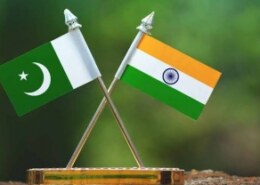Public discourse continues to explore the possibility of an Arctic "scramble," as if it were some kind of a 19th-century scramble for Africa. Anti-Scramble for the Arctic: There are high reserves of oil, gas, minerals, and fisheries in the Arctic, giving the region a big resource potential and makinRead more
Public discourse continues to explore the possibility of an Arctic “scramble,” as if it were some kind of a 19th-century scramble for Africa.
Anti-Scramble for the Arctic:
There are high reserves of oil, gas, minerals, and fisheries in the Arctic, giving the region a big resource potential and making it one of the more interesting regions in which to extract resources.
In some sense, they are strategic avenues because they account for the meltage of the ice with sea and now one can take easier routes between Asia and Europe within less time while at the same time saving many costs. Very high international power competition is prevalent once again today, and many countries will battle to prove some relevance in such a region today.
-Climate Change: Climatic changes have altered the Arctics conditions so fast. This means vast opportunities exist there for extracting its resources and traversing its ocean routes, also spurring an element of contest for controlling this region.
Points Against a “Scramble for the Arctic”:
-International Cooperation: Through the inter-governmental Arctic Council, it is highly successful for building cooperation within the Arctic countries in terms of environmental protection, sustainable development etc.
Environmental Concerns: The Arctic is an extremely fragile system that easily falls victim to environmental destruction. International concern about the preservation of the Arctic environment and responsible development is rapidly on the rise.
Indigenous Peoples’ Rights: The rights and interests of indigenous peoples in the Arctic region are increasingly acknowledged and respected.
-Economic and Technological Challenges: Developing in the Arctic environment presents serious economic and technological challenges that could limit the speed of development.
Conclusion
Although the site and potential for conflict and competition over the Arctic region do exist, it is unlikely to be a direct replica of the 19th-century scramble for Africa. The factors that are likely to influence the future of the Arctic region include international cooperation, environmental concerns, and the rights of indigenous peoples.
See less


The "String of Pearls" theory is a geopolitical concept that refers to China's alleged strategy of developing a network of maritime facilities and military presence across the Indian Ocean region, which could potentially encircle and challenge India's strategic influence in the region. Let's criticaRead more
The “String of Pearls” theory is a geopolitical concept that refers to China’s alleged strategy of developing a network of maritime facilities and military presence across the Indian Ocean region, which could potentially encircle and challenge India’s strategic influence in the region. Let’s critically examine the security and strategic implications of this theory for India:
It’s important to note that the validity and extent of the String of Pearls theory are debated, as China’s true strategic intentions in the region are not entirely clear. However, the perceived threat posed by this theory has certainly shaped India’s security and strategic thinking, leading to increased military modernization, regional diplomacy, and the strengthening of maritime partnerships to counter China’s growing influence in the Indian Ocean region.
See less